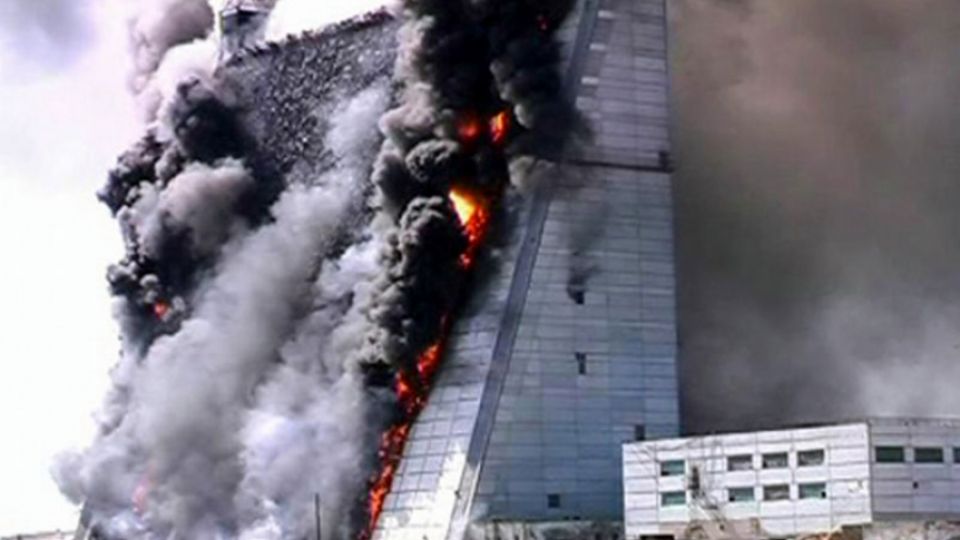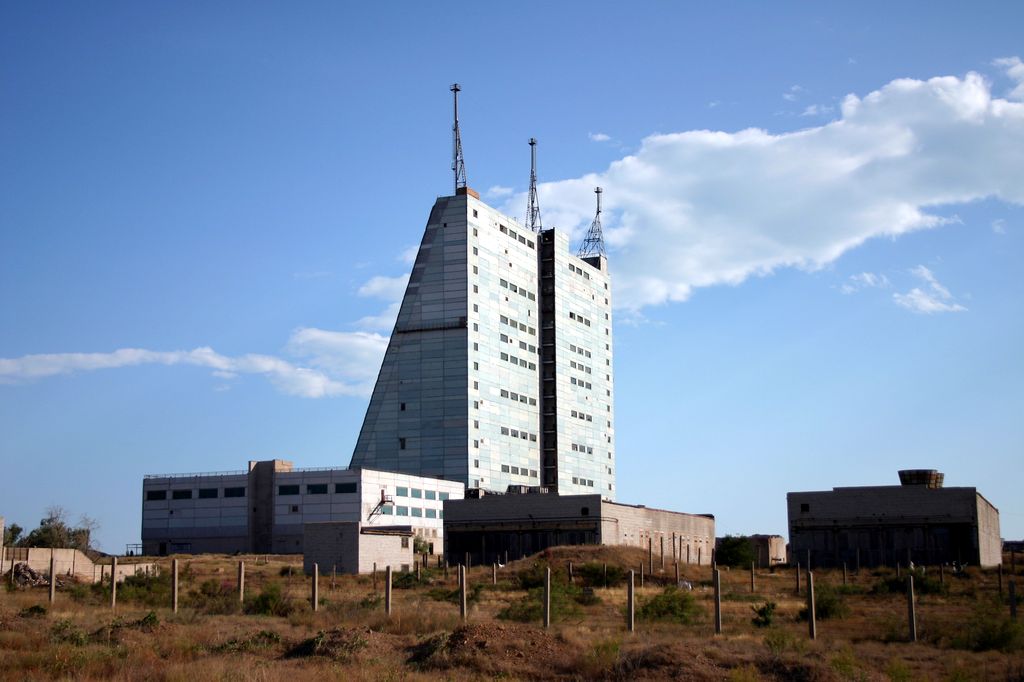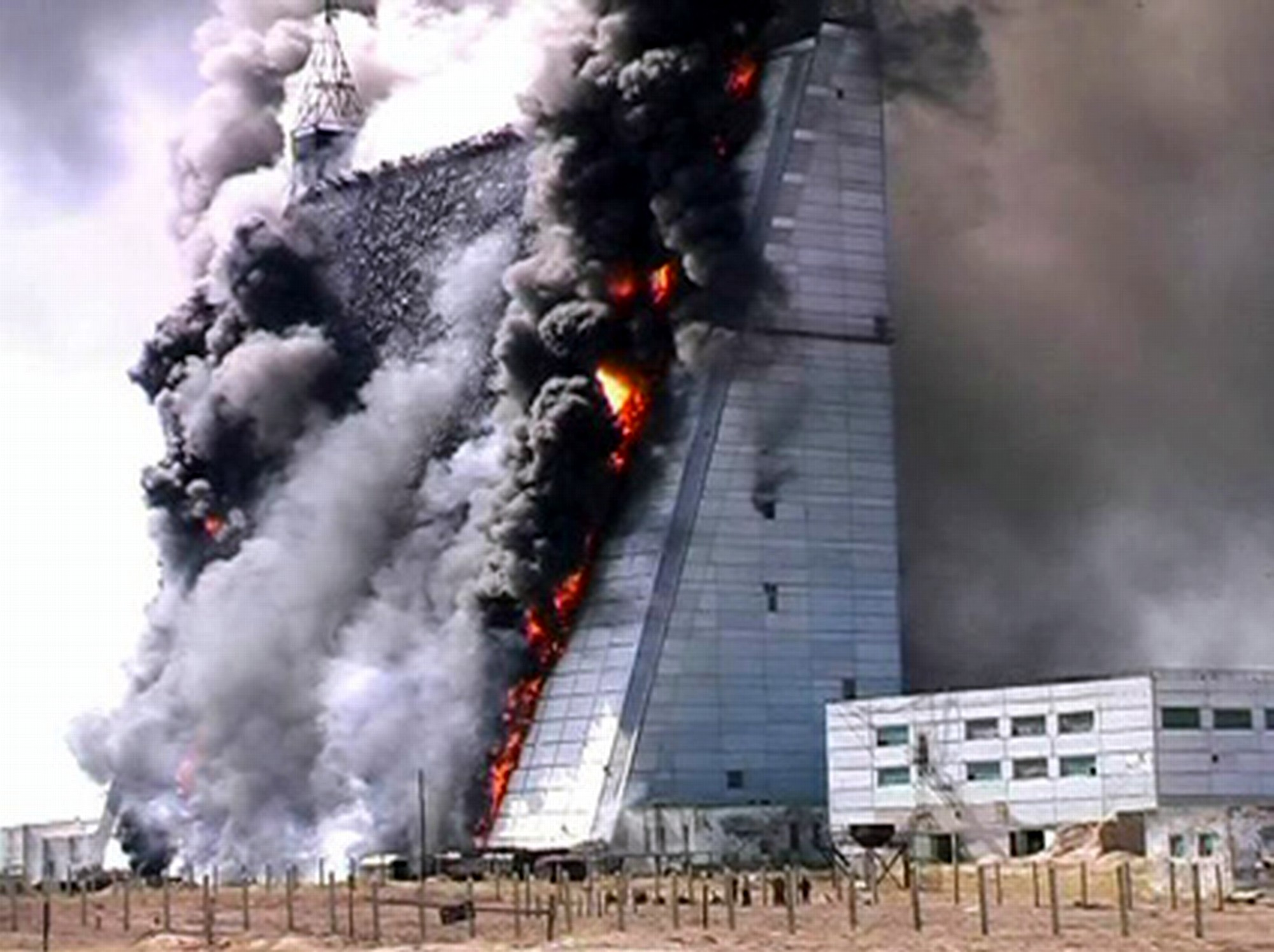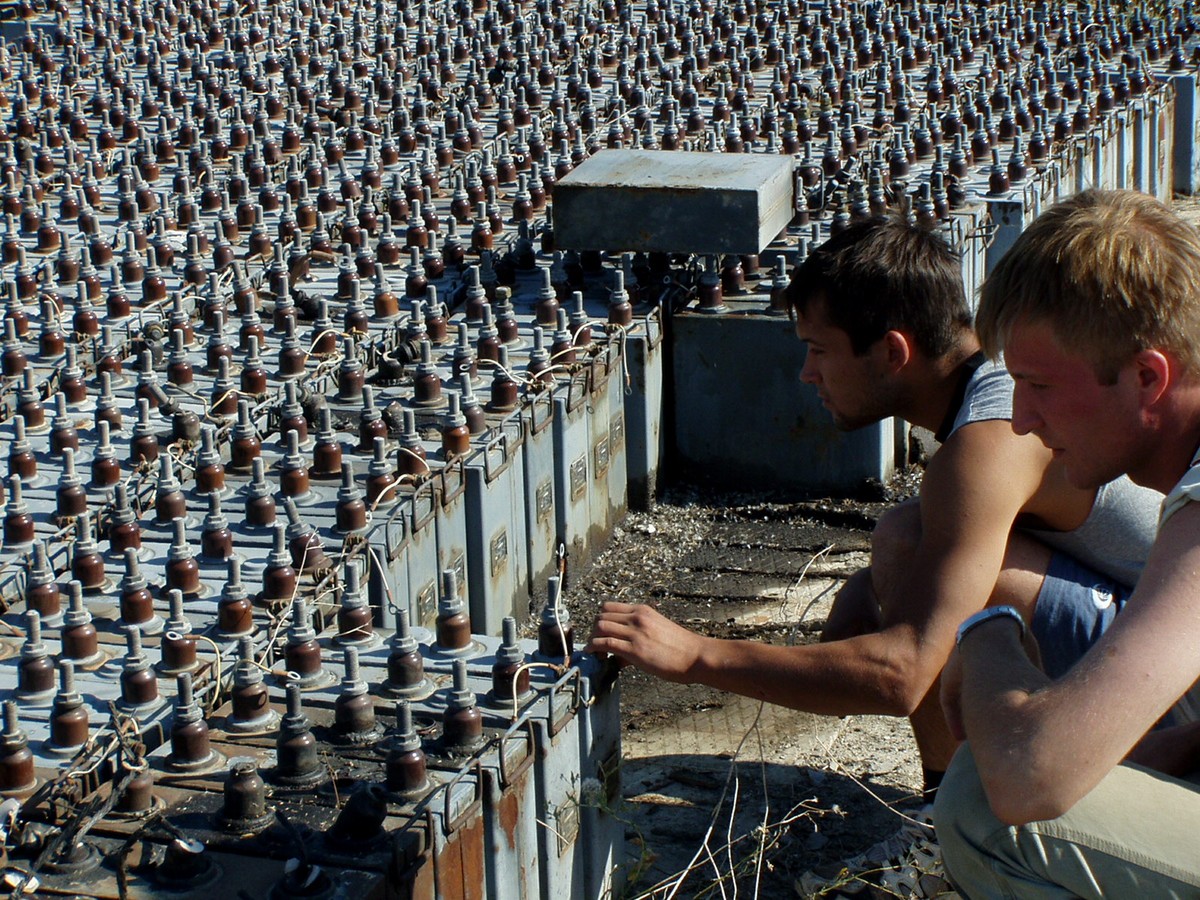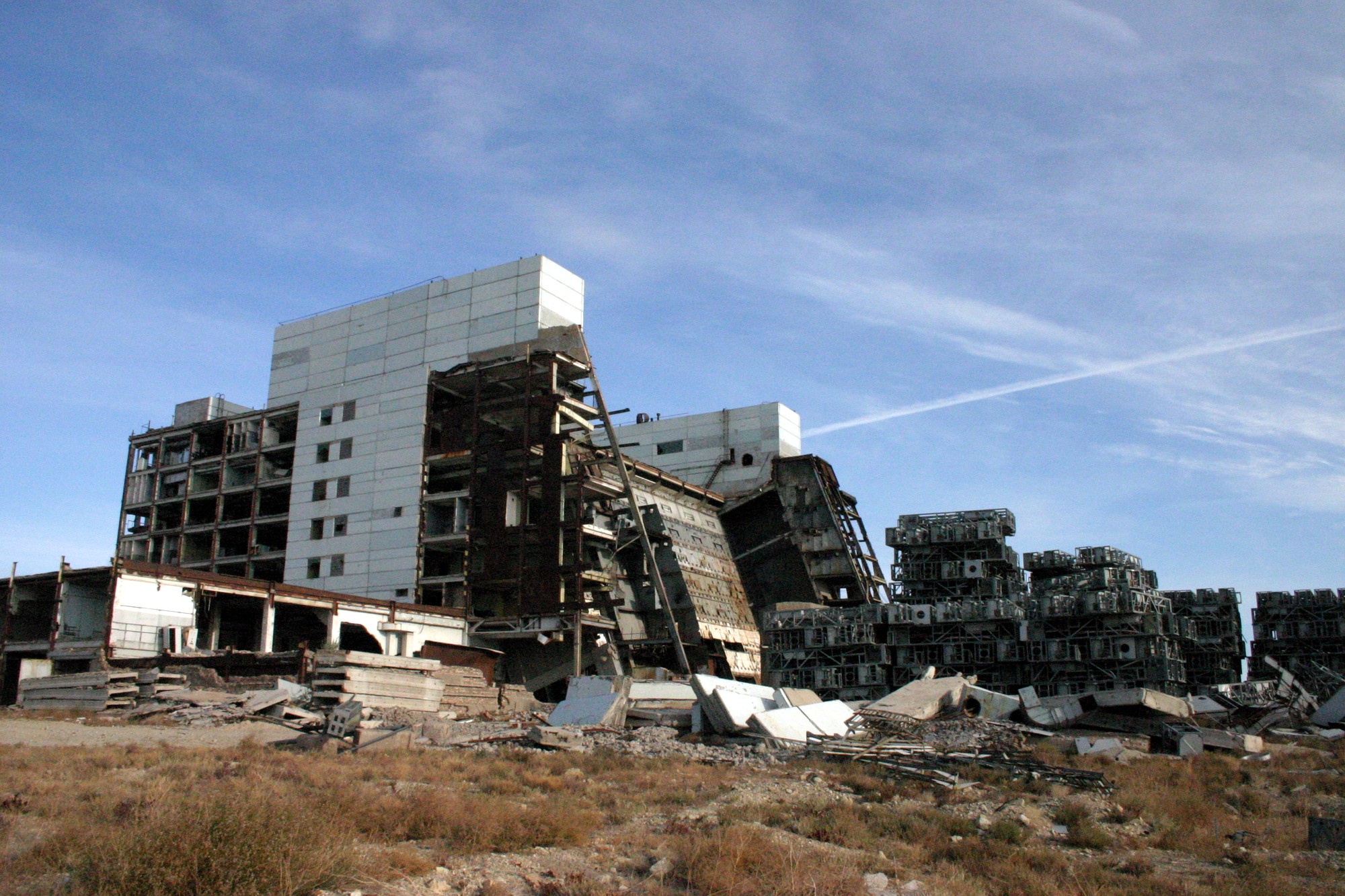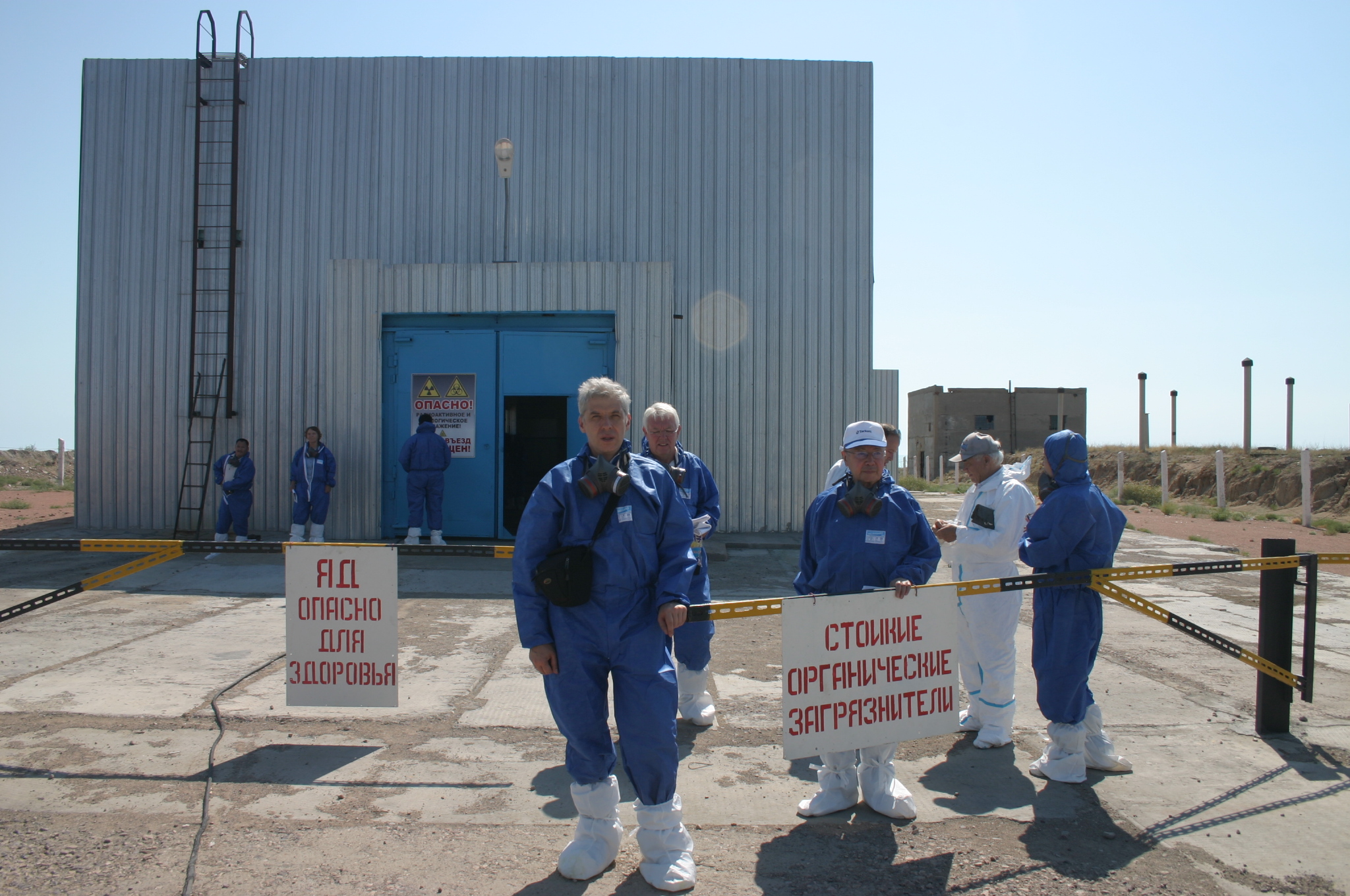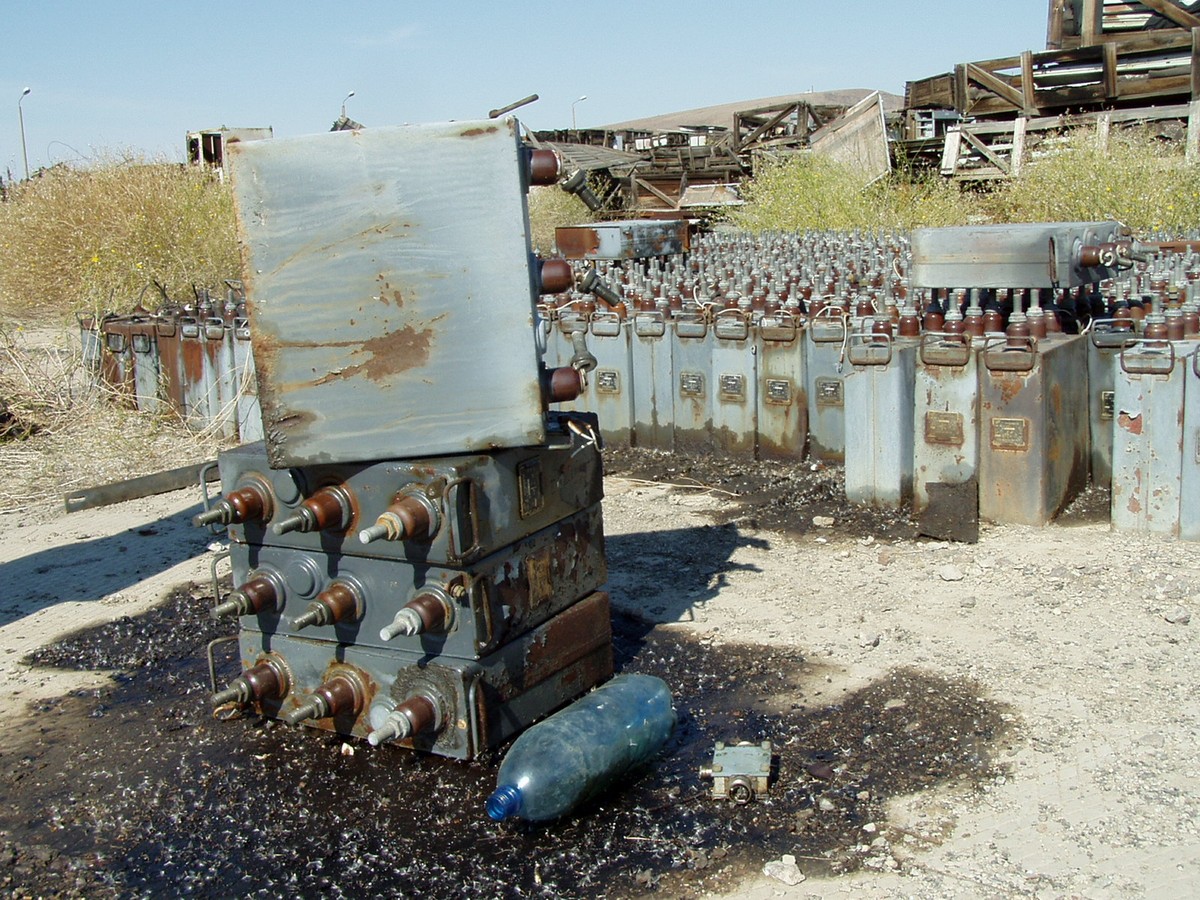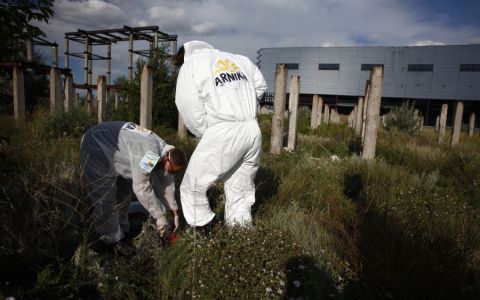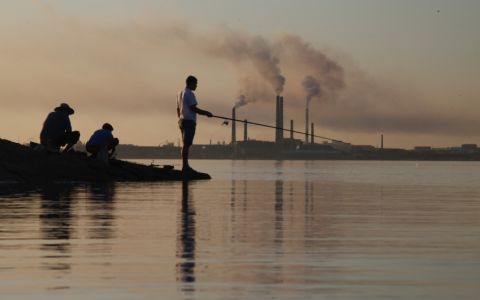Radar of early warning to detect intercontinental missiles and cosmic subjects Daryal-U – it was two dozens of large buildings, including two giant concrete towers 60 and 100 meters tall, located next to lake Balkhash, at the military base Balkhash-9. It was supposed to scan air and cosmic space within 10.000 kilometers radius and to protect Soviet Union from China and Iran. After 10 years of construction, in 1992, the complex was finished and ready for the 30-years of operation. But it was not its destiny. Along with the collapse of the Soviet Union, also resources to maintain the station disappeared.
In 1995, the station was closed down, and huge buildings, full of top top-secret radio equipment and computers, became a lure for thieves. Under the cover of the Russian military "protection", the station hosted for nearly ten years vandals who smashed high-tech equipment for the precious metals: gold, silver, platinum, and palladium.
One year later, Russia handed looted radar to Kazakhstan, and state officials sold the former military facility for scrap to Mercury Plus Co. Organization Kazspetsexport on behalf of the Ministry of Defense signed the contract reading that the object does not contain any chemical, toxic, explosive, radioactive and other similar contaminants. But it was not exactly like that…
Dangerous capacitors
In 2004, non-governmental organization EcoMuseum discovered at the station more than 15 thousand electrical capacitors filled with dangerous toxic chemicals – polychlorinated biphenyls (PCBs), and about 200 fire detectors with radioactive plutonium. Presence of such a large number of electrical capacitors was not accidental. Station for detection of ballistic missiles was designed for enormous radiation power – 25 MW – more than all radio stations on the Earth together, and it also had large surface of the antenna device, requiring huge supply of energy.
Most of the capacitors were found sealed, but some of them leaking. The dangerous finding was reported to the experts preparing National PCB inventory financed by United Nations Development Programme (UNDP-GEF). PCBs belong to the most toxic compounds in the world, and according to the international Stockholm Convention, they must be safely destroyed.
EcoMuseum convinced director of Mercury Plus – owner of the property that time, to not throw the capacitors on the landfill and to contact government and ask for help. Such amount of PCBs was not only threatening the health of people living nearby. A random leak of the chemical into lake Balkhash could completely destroy its unique environment forever.
Governmental official tried to the company first from posing a serious threat on environment. Later they recognized that the problem is old environmental burden caused by state itself. The problem quickly became known also on international level. As there was no suitable technology available neither Kazakhstan nor in surrounding countries, Germany offered its help.
Toxic boxes and corruption
An anonymous German company offered to cover the costs of a liquidation of the capacitors in Envio Recycling Company in Dortmund. The sum of expenses remains unknown. Kazahkstan was supposed to finance packing and transport of the capacitors according to strict international rules set by the Basel convention on transboundary transport of waste. The Ministry of the Environment released the money – 10 million euro – three years later. The winner of the tender was Mercury Plus. About this time, the director of the company Andrey Afanasyev died in car accident and management of Mercury Plus experienced numerous personnel changes.
Soon it was proved that almost half of the sum determined for PCBs destruction disappeared. A police investigation started and revealed that Mercury Plus managers corrupted high ranking officials of the Ministry of Environment Protection. A scandalous legal lawsuit started. The minister was given four years in prison sentence for misusing state budget, his two vice ministers left the court with two and three years of suspended sentence. Managers of Mercury Plus were sentenced for six years, and the property of the company was confiscated.
Apart from the money loss and scandal, two thirds of the capacitors – about 10 thousand – were transported from Kazakhstan at the expense of the state budget to Germany for destruction. The first load of dangerous containers was taken by a plane. The second load was transported by railway in two wagons in 2008, but the shipment has to wait for several months at Balkhash station as Russia was not willing to allow it to cross the border.
The problems did not stop even in Germany. Envio Company, receiving capacitors, was that time for several years facing investigation for contamination of Dortmund industrial zone by the same toxic PCBs and poisoning their own employees. Finally, the company went bankrupt and was closed down (in Germany, the story is well known as PCB Scandal).
Poisoned buildings
Scandals in Kazakhstan and Germany stopped the project, so the rest – 5 thousand capacitors, stayed in Daryal. In 2008, EcoMuseum was taking samples of the air in the building. It was discovered that looters broke stored capacitors while looking for copper parts. In the result, PCBs flooded all floors of the radiolocation station and soaked in the walls. Since that time, not only capacitors present risk to the environment, but the building itself too.
Ministry of Internal Affairs decided to protect the former military station by guards. But the emergency situation was far from being solved. According to witnesses, not armed guards protected only a warehouse with toxic capacitors, while other parts of Daryal-U were occupied by looters dismantling polluted station to get construction material. According to estimation of the local experts, every second new house in Balkhash city was built from these polluted materials.
At January 22, 2010, unauthorized disassembling caused collapse of the huge building and five people died in the ruins. By 2014, only a huge pile of debris can be seen at the place, where the largest radiolocation station of the world was standing years ago. The police guards cost are annually 500 thousand euro and it is under a question, who and how long for is going to pay for protection of the warehouse. The heap soaked by PCBs continues to present risks for human health and the environment, too. In the meantime, rain and melted snow washes out toxic compounds in the groundwater and lake Balkhash, distant only 80 meters.
Photos



